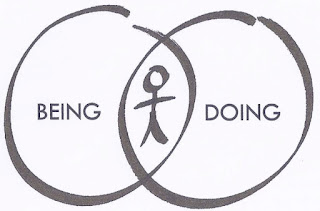Learning from John the Baptist
Today is the
feast of the beheading of John the Baptist. One of the reasons Catholics
recognize and honor saints is because their lives serve as examples for how we
can imitate and follow Christ. We look to the saints to learn from them. So
what can we learn from John the Baptist?
Humility. Several
of John the Baptist’s followers came to him concerned that the crowds were
leaving John and following Jesus. John’s response was, “He must increase, but I
must decrease.” (JN 3:30) This is the
perfect expression of both humility and the ultimate goal of the Christian
journey. Every day we are faced with this decision, do I follow my path or
Christ’s? Do I seek my glory, or Christ’s? This is what it means to die to
ourselves, to take up our cross and follow; it means that everything in me must
yield to Jesus. Think about the sacrifice John made. Before Jesus came on the
scene he was the main attraction. People traveled from all around to seek him out.
Surely he wasn’t doing his ministry for the purpose of seeking fame or
recognition, but he was human. Suddenly Jesus appears and the throngs of
followers leave John to follow the new guy; and John encouraged them to go. I
wonder how many leaders of big ministries and movements within the Church today
would be so willing to lay it all down?
Commitment to
the Truth. John the Baptist was ultimately arrested and beheaded because he
refused to allow King Herod to make a mockery of marriage. Herod lusted after
his brother’s wife, Herodias. He divorced his wife and had Herodias divorce her
husband, Herod’s brother, so they could be married. This was a violation of
Jewish law and the marriage covenant. John preached against Herod’s behavior
and his marriage to Herodias. Rather than choosing to repent, Herod had John
arrested. Later consumed with lust for Herodias’ daughter, Salome, Herod
promised her anything and she asked for John’s head on a platter at the
prompting of her mother. I can’t think of a more timely model for our age than
John the Baptist. We live in a society that has rejected God’s plan for
marriage through easy divorces, same sex unions, and wide spread cohabitation
before or in place of marriage. Ours is a culture that embraces lust, violence
and death. It is a culture that would rather mock and persecute God’s children
than repent and accept his mercy for themselves.
Faith Seeking
Understanding. “Are you he who is to come, or shall we look for another?” (MT
11:3) This was the message John sent from his prison cell to Jesus. It seems
odd that John would have doubts about Jesus. After all, John witnessed the
heavens open and heard the voice of the Father when he baptized Jesus. John
proclaimed that Jesus was the “Lamb of God who takes away the sins of the
world.” John announced Jesus as the Messiah. But now, sitting in a cold, dark,
lonely prison cell John sends some of the few followers he still has left to
ask Jesus if he really is the one. Why? I don’t know about you, but sometimes
God doesn’t always follow my plans. He doesn’t always do what I expect of him.
Sometimes, he does things that I don’t understand. I think that’s what John was
struggling with from his prison cell. I think that John had a certain idea of
what it would mean when the Messiah came, and his ideas and his reality were
out of synch. I think the other lesson here is that it is okay to ask God what
he’s up to; that having doubts is not incompatible with having faith. Our faith
should always seek understanding so that it can form deep roots to hold on to when
troubles come. John asked and Jesus answered, then Jesus went on to hold John
up as the” greatest among those born of women.” (MT 11:11)
So as we commemorate this feast day today, lets us pray that we can imitate John the Baptist in humbly seeking after God, boldly holding to the truth whatever the cost, and always seek to strengthen our faith by seeking a deeper understanding of God and his ways.
So as we commemorate this feast day today, lets us pray that we can imitate John the Baptist in humbly seeking after God, boldly holding to the truth whatever the cost, and always seek to strengthen our faith by seeking a deeper understanding of God and his ways.




Comments